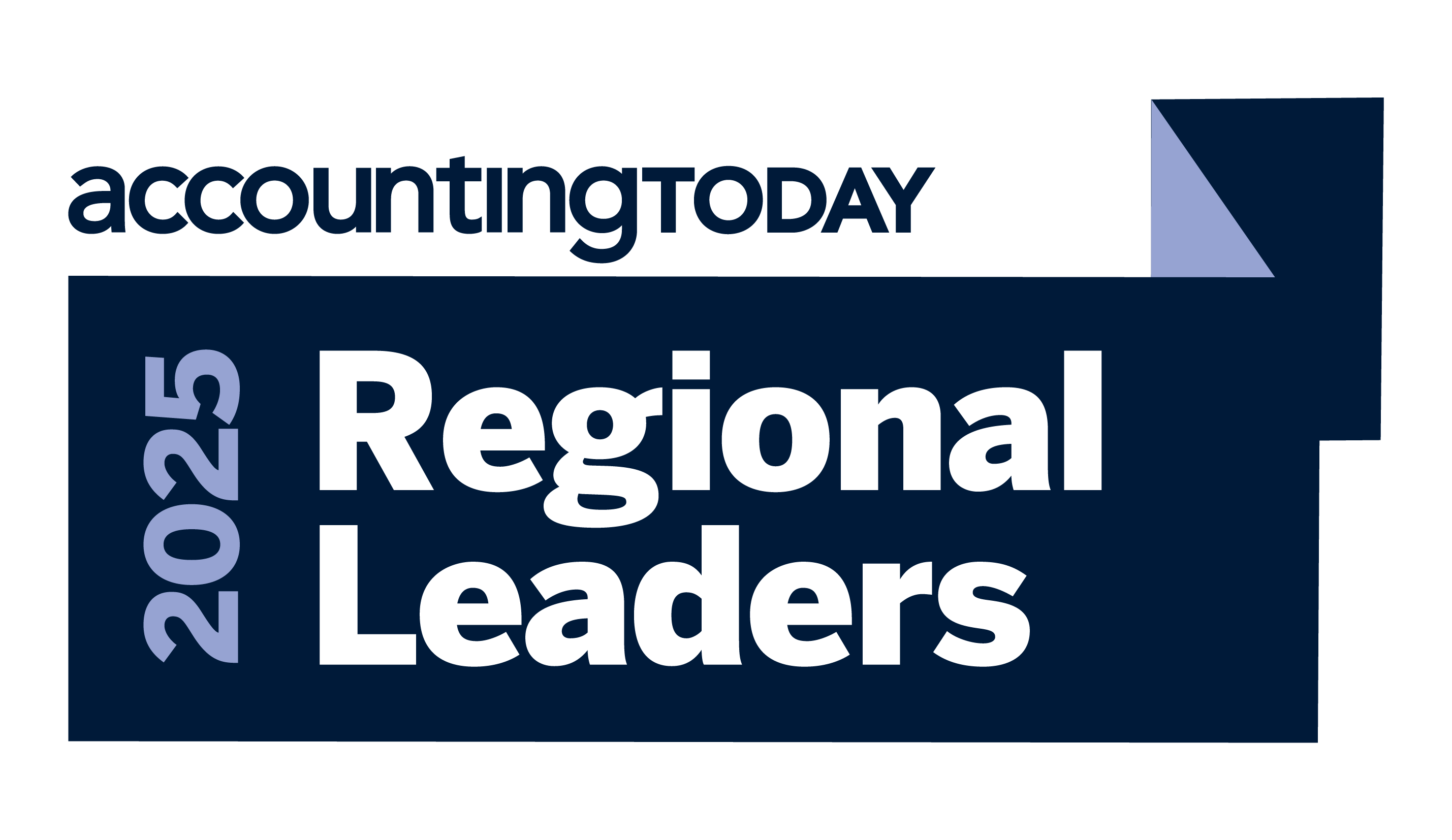Insights
We are proud to be named a West Coast Regional Leader for 2025


California's Climate Disclosure Requirements: What Your Organization Needs to Know
ARTICLE | November 18, 2025
Authored by Vasquez + Company
California has enacted two groundbreaking pieces of climate legislation that will significantly impact how large companies report their environmental and financial risk information. Senate Bills 253 and 261, which took effect in 2024, establish comprehensive climate disclosure requirements that extend far beyond California's borders, affecting any qualifying company that "does business" in the state.
The reporting timeline is aggressive: Scope 1 and 2 emissions disclosure begins in 2026 for fiscal year 2025 data, while Scope 3 reporting starts in 2027.
Understanding the Two-Pronged Approach
California's climate disclosure framework consists of two complementary laws, each targeting different aspects of corporate climate accountability:
SB 253: The Climate Corporate Data Accountability Act
This legislation requires large companies with annual revenues exceeding $1 billion to publicly disclose their greenhouse gas emissions across three scopes:
- Scope 1: Direct emissions from company-owned or controlled sources
- Scope 2: Indirect emissions from purchased electricity, steam, heating, or cooling
- Scope 3: All other indirect emissions from sources not owned or directly controlled by the company
SB 261: Climate-Related Financial Risk Disclosure
Companies with revenues exceeding $500 million must prepare biennial climate-related financial risk reports beginning January 1, 2026. These reports must align with the Task Force on Climate-related Financial Disclosures (TCFD) framework or equivalent standards, including the International Sustainability Standards Board (ISSB) requirements.

Key Highlights of SB 253 and SB 261:

Immediate Action Items for Organizations
Determine Your Compliance Obligations
The first step is assessing whether your organization falls within the scope of either law. Key considerations include:
- Revenue thresholds based on prior fiscal year performance
- Business operations or activities within California
- Subsidiary relationships and potential parent company reporting exemptions
- Industry-specific exclusions (notably, insurance companies are exempt from SB 261)
Establish Data Collection and Measurement Systems
For organizations subject to SB 253, implementing robust greenhouse gas measurement and tracking systems is critical. The California Air Resources Board (CARB) requires compliance with the Greenhouse Gas Protocol standards, which means organizations must:
- Establish clear organizational boundaries
- Develop comprehensive emission inventories
- Implement data collection processes for direct and indirect emissions
- Prepare for third-party assurance requirements
Scope 3 emissions present particular challenges, as they encompass upstream and downstream activities including purchased goods and services, business travel, employee commutes, and the use of sold products.
Prepare for Assurance and Verification Requirements
Both laws include third-party assurance requirements that add complexity and cost to compliance:
- SB 253 requires limited assurance for Scope 1 and 2 emissions beginning in 2026, escalating to reasonable assurance by 2030
- SB 261 allows for "good faith efforts" in climate-related financial risk reporting, with detailed explanations required for any reporting gaps
- Organizations must engage qualified assurance providers with appropriate experience and independence
Strategic Considerations and Challenges
Operational and Financial Impact
Compliance with California's climate disclosure requirements represents a significant operational undertaking that extends far beyond simple reporting. Organizations must consider:
- Investment in new systems and personnel to support data collection and analysis
- Costs associated with third-party assurance engagements
- Annual fees payable to California for program administration
- Potential penalties for non-compliance, which can reach $500,000 annually for SB 253 violations
Legal and Regulatory Uncertainty
The implementation landscape remains fluid, with several important developments organizations should monitor:
- Ongoing legal challenges, including First Amendment claims regarding compelled climate-related speech
- CARB's ongoing regulatory development process, with final regulations expected in early 2026
- Potential changes to reporting deadlines and requirements based on stakeholder feedback
Recommendations for Organizations
Start Planning Now
Despite regulatory uncertainty, organizations should begin preparation immediately. The 2026 compliance deadline for initial reporting is firm, regardless of final regulatory details. Early action items include:
- Conducting comprehensive scope assessments
- Evaluating current data collection capabilities and identifying gaps
- Engaging with qualified consultants and assurance providers
- Developing internal governance structures for ongoing compliance
Consider Broader Implications
California's legislation is part of a broader trend toward mandatory climate disclosure. Organizations should consider how compliance with these requirements positions them for potential federal regulations and other jurisdictional requirements that may emerge.
Leverage Existing Reporting Frameworks
Organizations already reporting under frameworks such as the European Sustainability Reporting Standards (ESRS) or other international standards may be able to streamline compliance, though careful analysis is required to ensure all California-specific requirements are met.
Moving Forward
California's climate disclosure requirements represent a significant shift in corporate reporting obligations, with implications extending far beyond environmental compliance. Organizations subject to these requirements face complex operational, financial, and strategic challenges that require careful planning and guidance.
The key to successful compliance lies in early preparation, systematic approach to data collection and measurement, and engagement with qualified professional advisors who understand both the technical requirements and broader business implications of these new regulations.
As the regulatory landscape continues to evolve, organizations must balance immediate compliance preparation with strategic flexibility to adapt to changing requirements. Those who approach these challenges proactively will be best positioned to not only meet their compliance obligations but also leverage their climate disclosure capabilities as a competitive advantage in an increasingly sustainability-focused business environment.
How Vasquez + Company Can Help
At Vasquez + Company LLP, we understand that navigating California's new climate disclosure requirements requires more than just compliance experience—it demands a strategic partner who can help you transform regulatory obligations into competitive advantages.
Whether you're a nonprofit organization, healthcare system, government entity, or private company, our team has the depth of experience and regulatory understanding to guide you through these complex requirements while protecting your organization's interests and reputation.
Don't wait until the 2026 deadline approaches. Contact us today to discuss how we can help your organization prepare for California's climate disclosure requirements and position you for success in an evolving regulatory landscape.
Our team can support your organization throughout the entire compliance journey:
Compliance Assessment and Planning
- Comprehensive scope determinations to identify your specific obligations under SB 253 and SB 261
- Gap analyses of existing data collection and reporting systems
- Development of customized compliance roadmaps aligned with your business operations
- Strategic planning to leverage compliance investments for broader sustainability initiatives
Implementation and Ongoing Support
- Design and implementation of greenhouse gas measurement and tracking systems
- Coordination with qualified third-party assurance providers
- Preparation of climate-related financial risk reports under TCFD or equivalent frameworks
- Ongoing monitoring of regulatory developments and their impact on your compliance obligations
Strategic Advisory Services
- Integration of climate disclosure requirements with existing ESG and sustainability reporting
- Risk assessment and mitigation strategies for climate-related financial risks
- Board and executive education on climate disclosure requirements and business implications
- Preparation for potential federal and other jurisdictional climate disclosure requirements
Sources
- California Legislature. "SB-253 Climate Corporate Data Accountability Act." California Legislative Information, 2023. Available at: leginfo.legislature.ca.gov
- California Legislature. "SB-261 Greenhouse gases: climate-related financial risk." California Legislative Information, 2023. Available at: leginfo.legislature.ca.gov
- PricewaterhouseCoopers LLP. "California climate reporting – SB 253 and SB 261 explained." PwC Inform, updated October 2025. Available at: pwc.com
- Deloitte & Touche LLP. "The Sweeping Impacts of California's Climate Legislation." Heads Up Publication, October 10, 2023; Last Updated December 19, 2023. Available at: deloitte.com
Regulatory Updates: Information in this article reflects regulatory developments as of late 2025. Given the ongoing rulemaking process, readers should monitor the California Air Resources Board website (ww2.arb.ca.gov) for the latest regulatory developments and implementation guidance.
Legal Disclaimer: This article is for informational purposes only and does not constitute legal advice. Organizations should consult with qualified legal and compliance professionals to assess their specific obligations under California's climate disclosure requirements.
Let’s Talk!
You can call us at +1 213.873.1700, email us at solutions@vasquezcpa.com or fill out the form below and we’ll contact you to discuss your specific situation.
Required fields are marked with an asterisk (*)

Vasquez + Company LLP has over 55 years of experience performing audit, tax, accounting, and consulting services for nonprofit organizations, governmental entities, and private companies. We are ranked among the top 1% of accounting firms by the AICPA and deliver tailored solutions that meet the unique needs of each client.
For more information on how Vasquez can assist you, please email solutions@vasquezcpa.com or call +1.213.873.1700.
Subscribe to receive important updates from our Insights and Resources.